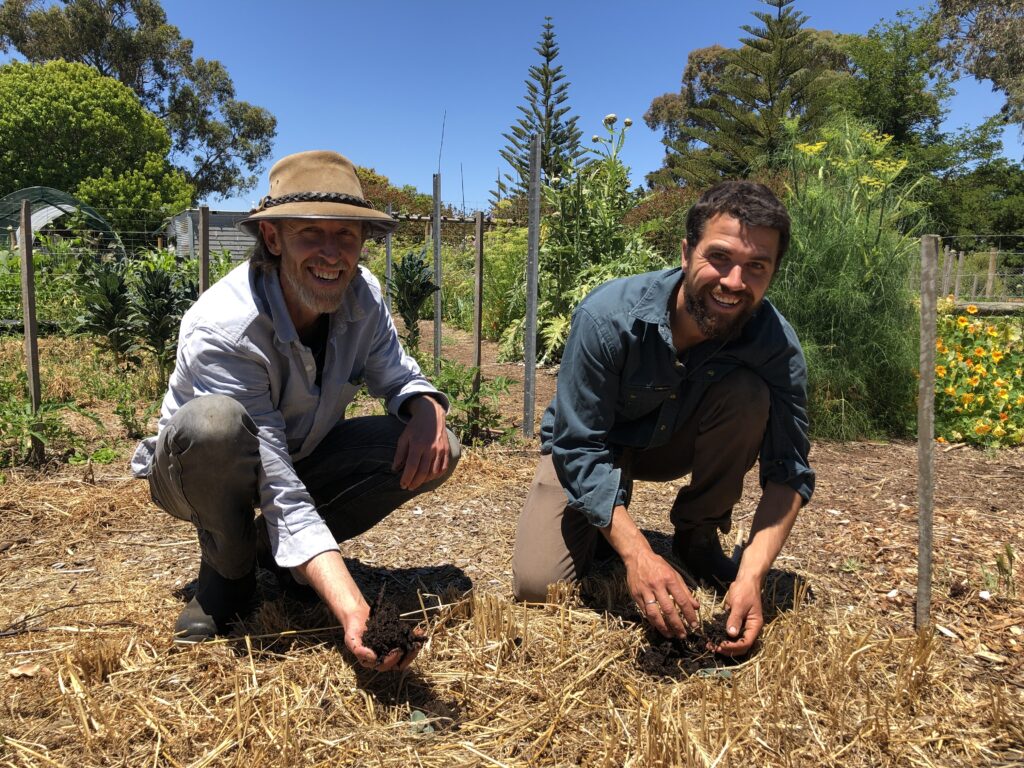If you’ve been following the Ecovillage horticultural updates, you’re probably well aware of how much we value good compost. As such, in our demonstration gardens we have been making and trialling a few different systems to test the quality of compost made and ease of use.
Firstly, what do we use compost for and how can we get the most out of it? While compost is a source of nutrients for plants, you would need large quantities to meet all the plant nutrition requirements in areas any larger than a small home garden.
Another way to approach compost is to treat it as a biological inoculant. Placed in situ with germinating seeds, around seedlings or diluted and watered in around plants, it delivers a plethora of microbes and their metabolites right to the root zone. These microbes readily colonise the roots as plants provide them with a steady supply of carbon rich exudates in exchange for the nutrients they acquire from the soil surrounds as well as the health promoting compounds they produce. This somewhat emulates what happens in natural environments where most seeds and seedlings get started within the fertile duff layer, just below surface litter.
Compost made for such a purpose should have a diverse population of beneficial bacteria, nematodes, protozoa and most importantly, lots of saprophytic fungi. This is tricky because this type of fungi requires aerobic conditions. By the time a freshly made heap has gone though its thermal heat phase, shrunk and started to cool enough for the fungal network to get growing, oxygen is in short supply. What’s more, turning the compost to aerate it at this stage breaks up the very mycelia we are trying to encourage.
A husband and wife team in Canada have come up with a composting system they call the Johnson-Su Bioreactor. It is designed to address all these fungal requirements and is producing outstanding biologically rich compost. They are cheap and easy to build and use, and there’s no manual turning involved. Microbiology assessments of the compost we have made using this system scored 100% in all categories
To find out more about them check out this link:
https://www.csuchico.edu/regenerativeagriculture/bioreactor/index.shtml
Keep an eye out for some of these around the Ecovillage. You might find one next to your garden.



